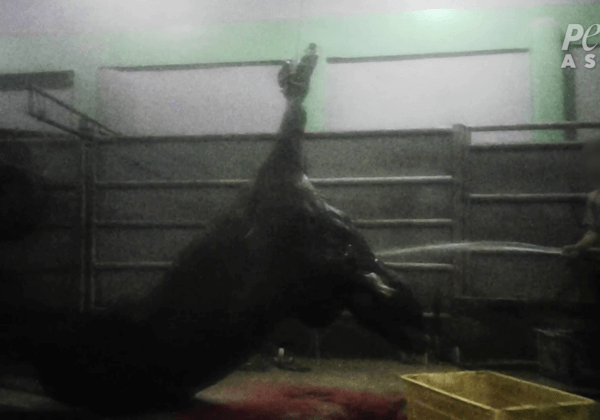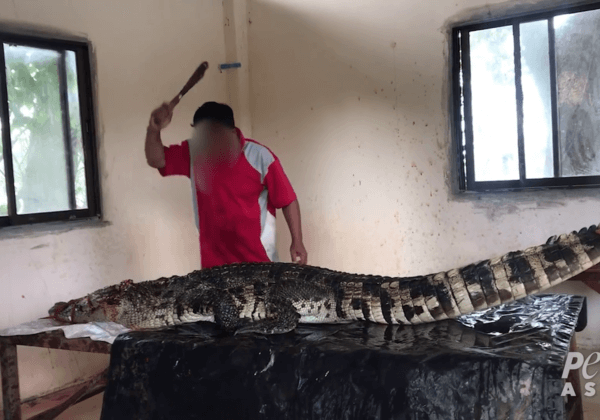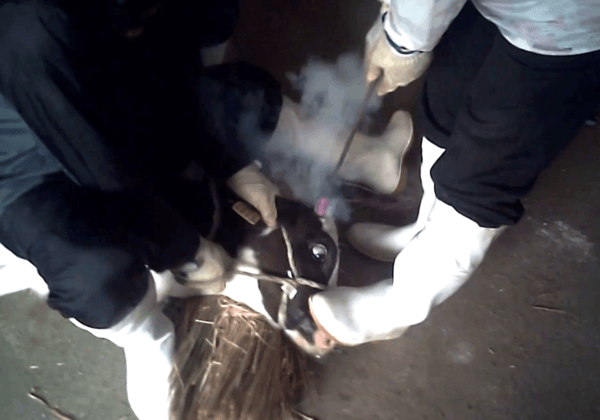Wildlife Trafficking Openly Perpetrated at Satria Bird Market
PETA recently captured video footage of illegal wildlife trafficking at Bali’s Satria Bird Market. A shop owner was filmed offering monkeys and a slow loris for sale. Slow lorises are nocturnal primates and a protected species in Indonesia. The trafficking of monkeys into Bali is illegal.
Suffering for Sale
Obtaining these animals in order to sell them is a deadly business. Baby monkeys are often illegally abducted from their jungle homes after hunters kill their mothers. The slow loris at the market was kept in a small, barren cage without access to water, and there was no official record of the animal, who was being sold “off the books.” Many exotic animals who are sold to ill-informed buyers or acquired as novelty “pets” on a whim die prematurely or are abandoned when buyers are no longer able or willing to care for them.
PETA is calling on law enforcement and the Ministry of Environment and Forestry to investigate this illegal and violent trade and file appropriate charges against the perpetrators.
This is the third time in as many years that illegal wildlife trafficking has been exposed at this market. Just last year, the same shop was caught selling monkeys, who were confiscated. The shop was given a warning and agreed never to sell monkeys again. Yet it brazenly continued to sell the illegally imported animals. The wildlife trafficker even compares his activities to those of the Mafia.
Authorities’ ineffectual warnings have clearly done nothing to deter vendors. Meaningful enforcement must be implemented without delay.
Threat to World Health
It’s estimated that 75% of all new infectious diseases originate from nonhuman animals. Animal markets, like the one in which the novel coronavirus is believed to have originated, are potential breeding grounds for viruses that cause zoonotic diseases, including COVID-19, SARS, and monkeypox. These markets, where there is direct contact between customers and live animals, provide the ideal environment for viruses to jump from one host to another. Feces and bodily fluids can be easily and unknowingly carried into restaurants, homes, and other places on the shoes and clothing of anyone who visits such markets. Rabies and the herpes B virus, which is nearly 70% fatal to humans without timely treatment, can be transferred from macaques to humans.
What You Can Do
Never buy animals at markets, from dealers, or from pet shops. Animal shelters are filled with dogs and cats who need loving homes.
If you see animals for sale illegally, contact the local authorities.










